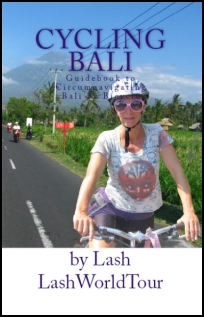How to Maximize Sleep While Traveling
If you truly want to experience new places and new experiences to the fullest capacity, then you are going to enjoy it so much more if you are waking up feeling fresh and fully rejuvenated for the day ahead, and not fuzzy-headed and grouchy.
A good night’s sleep gives you the chance to rest up, charge the batteries, and both mentally and physically prepare you for the upcoming adventures. Travelling uses up quite a lot of energy too, so you’ll be needing all you can get!
If you want everlasting memories, it’s sometimes worth the early nights to fulfil the beauty that the start of the day brings, so, here are some pointers to bear in mind when you want to maximize sleep while travelling…
1. Worry as little as possible
There are very few people who haven’t spent a night in bed with worries whirring around their around head like thoughts on a busy motorway. Obviously, if this happens to you then you will be aware of how this can affect your quality of sleep.
If you’re to counteract these sleep issues, then you have to adopt a proactive approach in regard to managing stress. This will help to guard against interrupting your sleep, which, if allowed to, will only bring on elevated levels of stress and leave you in a vicious cycle.
All of this can be avoided if you consider some or all of these before-bed strategies:
-
Deep breathing
-
Visualisation
-
Journal writing
-
Priority setting
-
List writing
2. Expose yourself to natural sunlight
Travelling a lot can confine you to all sorts of different modes of transportation, which can leave you ‘in the dark’, so to speak. If you’re catching flights and trains when during the daylight hours then you might not be exposing yourself to enough light for your own good.
It’s important to get out there and be exposed to natural sunlight as it is essential for forming a good state of sleep.
Making sure that you are getting some natural sunlight for a mere 10 minutes each day has the ability to effectively reset your internal body clock (circadian rhythm). You should ideally look to enjoy 20 minutes a day; you will be able to observe how this exposure supports your sleep.
Also, ensuring that you receive some natural light within half an hour of waking is really important too, as this will supply us with vital vitamin D support that we need to have a healthy body, Sarah Cummings of Sleepadvisor clarifies.
3. Take the tech away from your sleep environment
This is a tricky but very prominent point to adhere to, nonetheless. In a modern society, and with the craving to be ‘connected’, we find ourselves glued to smart devices at all times of day and night making it hard to step away.
However, if you are to get sleep of any substance, you must limit your screen time to prevent light from the TVs, phones, tablets, etc., from suppressing your body’s natural melatonin production. What’s more, these screens will actively stimulate your mind, which is the opposite effect you need when you’re trying to rest.
You might be super excited to upload the new pictures from the day’s adventures on to social media, but if you’re going to do this, make sure that you get it done at least two hours before you go to bed at night.
Some devices have a night-time mode available, but you can still be stimulated by the information you’re viewing, so it’s best just to give the tech a rest before sleep.
4. Know when to indulge in caffeine
Having a hot mug of coffee can be such a soothing, welcome sip of loveliness, but if enjoyed at the wrong time of day, there’s the potential for spoiled sleep to ensue.
Coffee and sunrises can work as a perfect pair, but coffee and sunsets are not so good for sleep, so remember that.
No caffeine should be passing your lips, ideally after 3pm each day. This is because it can stay in the body for up to eight hours after you have consumed it, and we all know the caffeine is a stimulant. Therefore, if you are setting yourself a reasonably regular bedtime routine each night to go sightseeing, backpacking, etc., then you want the best sleep you can possibly get.
Swap your coffee out for a warm cup of chamomile in the night-times and let the herbal beverage put your mind in a state of relaxation before you drift off into a sound slumber.
5. Be as active as you can be
Having some form of exercise in your life, whether travelling or not, is vital for effective sleep.
If you’re travelling, then the chances are that you will be doing plenty of walking, or perhaps swimming, surfing, SUP, and more. If this is the case, you’re on the right path, but if you don’t remain active then your sleep will suffer and you might find that you don’t enjoy your travels as much as you possibly could have or wanted to.
===================================================












 Hi! I'm Lash, an American nomadic world traveler who's been traveling solo since 1998. I’m passionate about traveling the world nomadically and then sharing it all with you. I hope to inspire you to travel the world, to entertain you with tales from the road, and to help you reach your travel dreams. Welcome!
Hi! I'm Lash, an American nomadic world traveler who's been traveling solo since 1998. I’m passionate about traveling the world nomadically and then sharing it all with you. I hope to inspire you to travel the world, to entertain you with tales from the road, and to help you reach your travel dreams. Welcome! 



